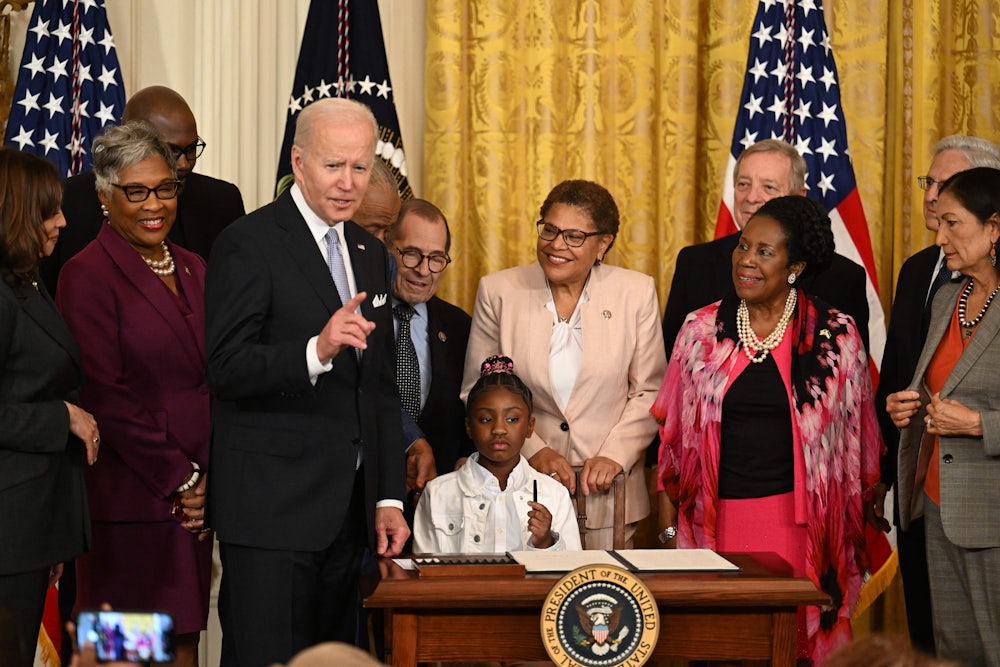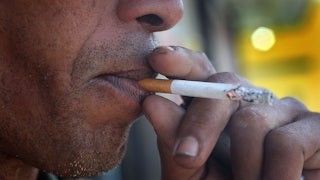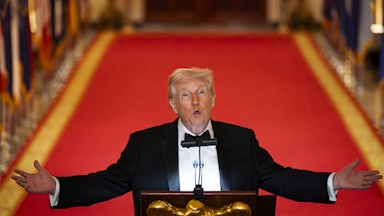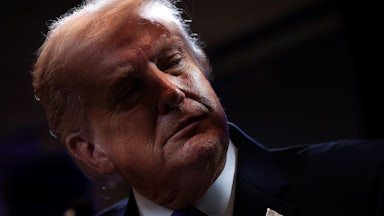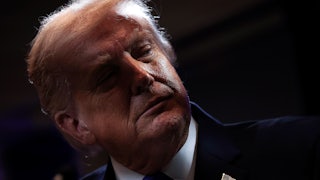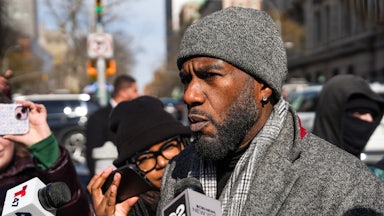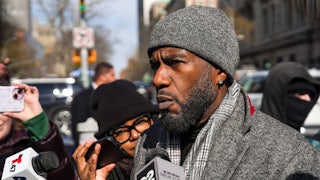Two years ago, we witnessed the nine minutes and 26 seconds of torture of George Floyd at the knee of former police officer and convicted murderer Derek Chauvin. We also witnessed three other police officers allowing the slow murder to happen almost completely uninterrupted. We already had a hashtag, “I can’t breathe,” after the disturbing video of Eric Garner’s chokehold arrest that resulted in his killing by police officer Daniel Pantaleo, with many other officers standing by and watching. The same summer of Floyd’s murder, I announced my run to be the first woman and only the second Black mayor of New York City, with police transformation as a key pillar of my platform. Wednesday, as the new president and CEO of the nation’s oldest and largest civil rights coalition, I sat in the White House during President Biden’s signing of his important police accountability executive order. Here is why it matters, even to a progressive reformer like me.
Biden’s order, signed on the second anniversary of George Floyd’s murder, in front of Floyd’s 8-year-old daughter, Gianna, is modeled along the lines of the George Floyd Justice in Policing Act. That means it started with the template of the demands made by Floyd’s family and the family of so many other victims, which passed the House of Representatives but stalled in the Senate. There are many provisions to the act and, therefore, to the executive order. But here are the provisions that matter most.
It establishes a database on excessive force to which federal law enforcement must contribute data on officer misconduct, including terminations, civil judgments, and more. We don’t have one, and therefore there is little public transparency on how widespread the problem is and where there may be agencies or units requiring more oversight and reform.
It takes some steps to prevent white supremacists from being retained by federal law enforcement, which advocates have long demanded. Communities of color know that there are police officers who hold racist views. In New York City, a police department inspector who was responsible for battling internal harassment and discrimination had posted racist messages on a law enforcement “rant” board. He was caught and finally fired. But it has been all too rare. Well over a decade ago, the FBI raised concerns about white supremacist police officers. Yet there were no accountability mechanisms to identify or weed out racist police officers. And as we learned during the violence at the Capitol on January 6, 2021, these concerns were raised anew as some police officers and former police officers participated.
For many progressives who want more dramatic transformation, there is more we must do. The George Floyd Justice in Policing Act goes further in key ways. For one thing, we must still address qualified immunity, which too often is a near-impossible bar to civil claims for damages against police officers who harm and kill people. Also, President Biden does not have the power to extend his executive order to local law enforcement agencies. We still need the legislative reforms that the House passed. That fight will continue in Congress, but it can also happen at the state level. This executive order can help put some welcome wind in advocates’ sails.
But within the executive order’s somewhat limited reach, there will be opportunities to engage in its implementation to ensure it has meaningful impact. And the federal government extends the measures laid out in the executive order as requirements through its grant-making authority. That presents a real opportunity to use carrots and not just sticks to get at transformation.
Here is also what we should not miss about the importance of this moment: Gianna Floyd. A year ago, on the first anniversary of her father’s murder at the knee of Derek Chauvin, she was on Capitol Hill, the youngest lobbyist, showing up to push for the George Floyd Justice in Policing Act. She broke my heart when she said then that her daddy “changed the world.” It was heart-breaking because no Black child should have to endure her father’s brutal killing at the hands of police officers and then be asked to appreciate this crime for the change it would bring. But the change is critical because it would ensure that her father’s death would not be in vain. The act passed the House but stalled in the Senate, caught in a political chokehold that pitted the safety and rights of Black and brown people against police unions and conservatives who believe “tough on crime” requires a free hand, and knee, for police officers.
On Wednesday, as I stood in the room and watched the president look down at Gianna and call her up to the desk, to sit in the chair he just occupied, handing her the one and only pen he used to sign it, he said the words that made me cry as I looked at her face while she looked up at him. He said, “Your Daddy changed the world.” I have also become friends with the uncle of Jacob Blake, paralyzed in his car when an officer shot him in front of his daughter in Kenosha, Wisconsin, in August 2020. He and I had exchanged hugs before the signing. He said, “It matters. We did this.” And it does matter.
We have experienced this month the horror of a white supremacist taking the lives of 10 Black people at their only community-based supermarket. We watched in renewed horror the murders of babies in the Latino community of Uvalde, Texas. In the midst of all our challenges and all the hate, violence, and vitriol, our passion for what is possible is renewed by a recognition of meaningful steps born of our tears and our tenacity. This executive order is a hard-fought victory, and even while there is more to do, we have to celebrate the sacrifices of the families and their tireless fight to ensure that their loved ones’ deaths may prevent others. Black people know that the road to justice is long and broken, and yet we still walk it, arm in arm, until we overcome. And we shall.
